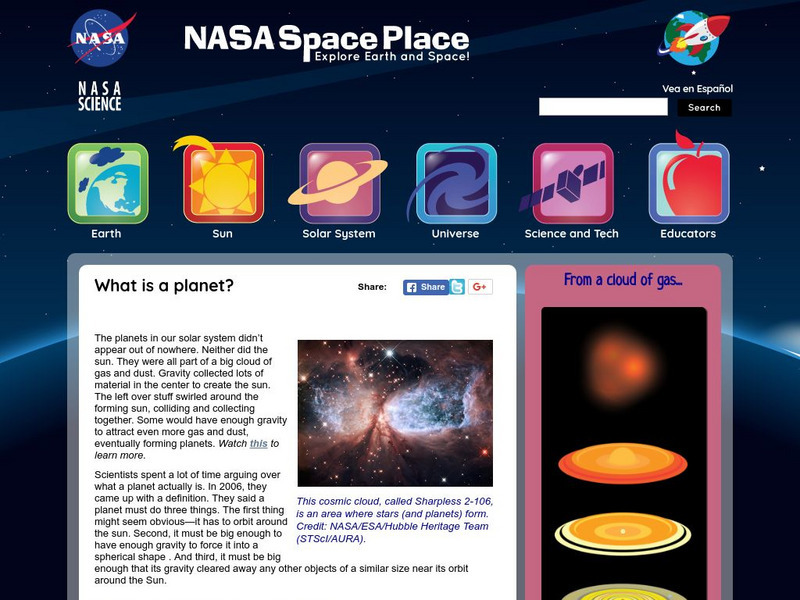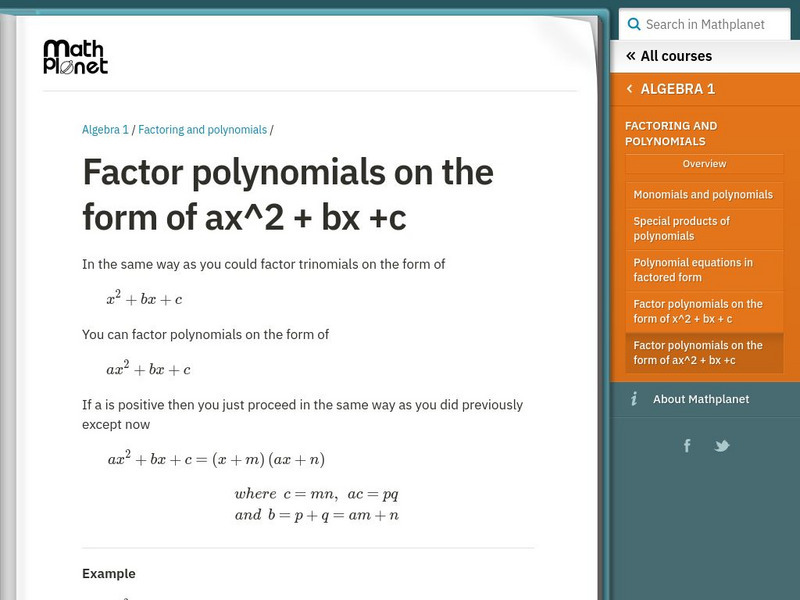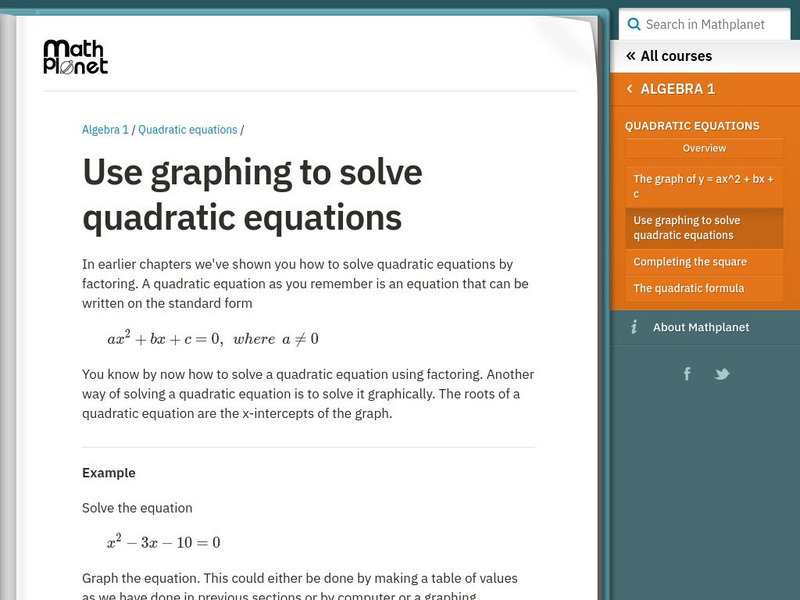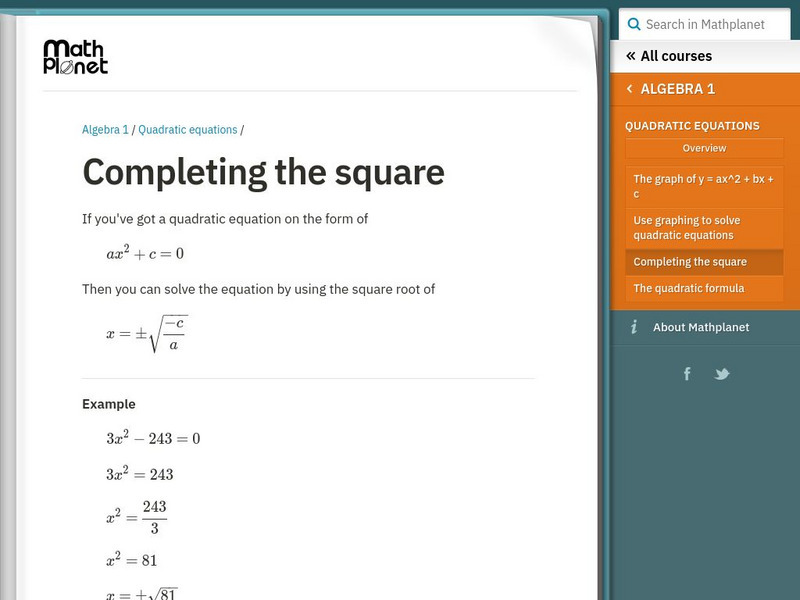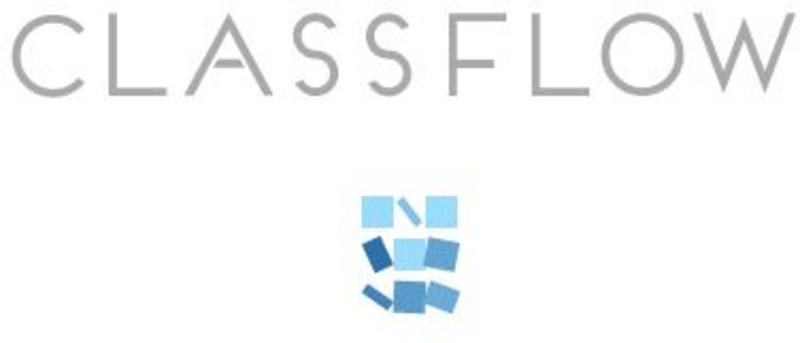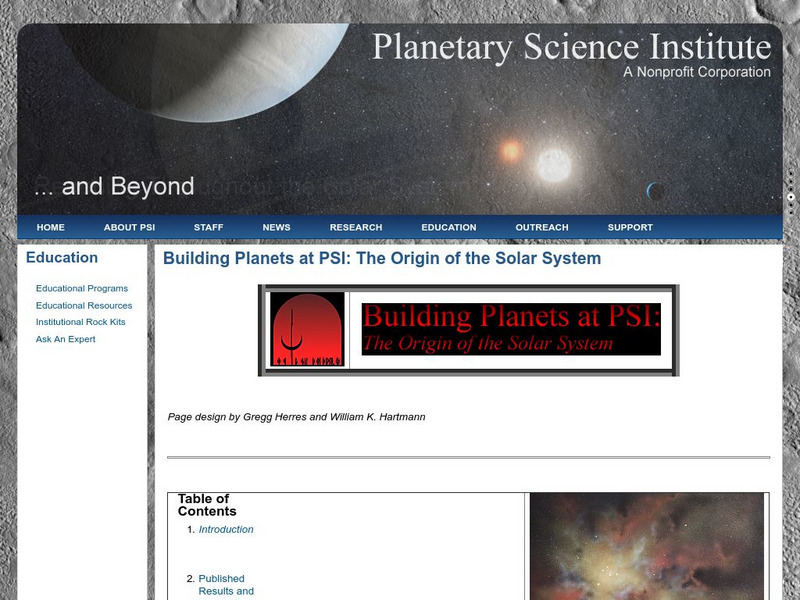NASA
Nasa: Space Place: What Is a Planet?
Explore our solar system's planets- more specifically what planets are made of, and how they are formed.
CK-12 Foundation
Ck 12: Earth Science: Formation of the Sun and Planets
[Free Registration/Login may be required to access all resource tools.] How the Sun and planets formed.
PBS
Pbs Learning Media: The Sun and Planets
Observe the sun and the rotation of the planets in this moving image from NASA. Observe the axial tilts and directional rotation of planets and how they differ for each planet. Be sure to read the background information on how planets...
University of Richmond
Black Virginia: The Richmond Planet: 1894 1909
This curation, transcription, and interpretation of the Richmond Planet opens a window into fundamental issues of race, equity, justice, violence, and power that still stir the nation today. Thirteen formerly enslaved men formed the...
Math Planet
Math Planet: Factor Polynomials of the Form of X^2 + Bx + C
This resource is about factorizing trinomials of the form x^2+bx+c by making them into a product of two binomials x^2+bx+c=(x+m)(x+n) where m+n=b and m*n=c
Math Planet
Math Planet: Factor Polynomials on the Form of Ax^2 + Bx +C
You can factor polynomials of the form ax^2 + bx + c. If a is positive, then ax^2+bx+c=(x+m)(ax+n) where c = m*n, a*c = p*q and b = p+q = a*m + n
PBS
Pbs Learning Media: Earth's Systems: The Water Planet
Observe different forms of water and how it covers about 75 percent of Earth's surface in this media gallery captured by NASA and the U.S. Geological Survey (USGS). Use the satellite and ground images in this resource to enhance student...
Khan Academy
Khan Academy: How Our Solar System Formed
An article describing how the sun, planets, moons, and beyond Pluto was formed. Learn more about the beginning of our solar system.
Wonderville Media
Wonderville: Planets
There are eight planets in orbit around our Sun. These planets form our solar system. The eight planets are Mercury, Venus, Earth, Mars, Jupiter, Saturn, Uranus, and Neptune. There are also rocks, moons, comets, and other objects going...
Other
Space Science Institute: Alien Earths: Planet Quest
New technologies are continually being developed to help us look deeper into space to discover new planets and to search for other intelligent life forms. Learn about some of these initiatives here.
TED Talks
Ted: Ted Ed: 3 Planets That Shouldn't Exist
Scishow explores several exoplanets whose features suggest that they shouldn't even have been able to form in the first place! [5:06]
Math Planet
Math Planet: Algebra 1: Exponential Growth Functions
An exponential function is a nonlinear function that has the form of y=a*b^x, where a != 0, b > 0. An exponential function with a > 0 and b > 1, like the one above, represents an exponential growth and the graph of an...
Math Planet
Math Planet: The Graph of Y = Ax^2 + Bx + C
A nonlinear function that can be written on the standard form ax^2 + bx + c,where a is not = 0, is called a quadratic function. All quadratic functions hava a U-shaped graph called a parabola.
Math Planet
Math Planet: Use Graphing to Solve Quadratic Equations
A quadratic equation is an equation that can be written on the standard form ax^2 + bx + c = 0, where a is not = 0. One way of solving a quadratic equation is by factoring. Another way of solving a quadratic equation is to solve it...
Alabama Learning Exchange
Alex: Creating a Life Form
For this particular lesson, the young scholars will create an unknown life form and planet. The creation of the life forms will begin at the chemical level and be explained throughout the levels of organization to the level of organism....
Math Planet
Math Planet: Completing the Square
If you've got a quadratic equation on the form of ax^2 + c = 0 Then you can solve the equation by using the square root of x = square_root(-c/a) or x = -square_root(-c/a)
ClassFlow
Class Flow: Slope Intercept Form
[Free Registration/Login Required] This flipchart should be used to help the students understand the concept of slope-intercept form and expand their knowledge of graphing linear equations.
ClassFlow
Class Flow: Decimal Word Forms
[Free Registration/Login Required] In this flipchart, students will learn how to write decimals in word form.
Other
Planetary Science Institute: Building Planets at Psi
An article about the Planetary Science Institutes's advanced computer software, which it uses to model the way the solar system may have formed. Includes some insights into the results already obtained.
PBS
Pbs: Journey to Planet Earth: Rivers of Destiny
Journey to four major river systems - the Mississippi, Amazon, Jordan and Mekong rivers - and take a look at the challenges happening to the people whose livelihood hinges around them.
Cosmos 4 kids
Cosmos4 Kids: Everything Gathers
Understand that smaller parts make up the larger parts of our solar system. See that gas and dust come together to form a star, small rocks and asteroids come together to form planets, and so on. This page is a reference page that...
Other
Monroe County Women's Disability Network: Maps & Globes: Water Forms
This site is provided for by the Monroe County Women's Disability Network. Some basic information about water on our planet and the various water forms that make up three-quarters of the earth's surface. Includes some simple quizzes to...
ClassFlow
Class Flow: Promethean Planet: Graphing and Interpreting Linear Functions
[Free Registration/Login Required] This flipchart shows students how to plot points on a coordinate plane, create linear graphs and translate linear functions between differing forms.
ClassFlow
Class Flow: German Command Form
[Free Registration/Login Required] This grammar lesson goes along with chapter 9 of the textbook Deutsch Aktuell 1. It works on the four command forms. There are links to grammar websites for additional practice.
